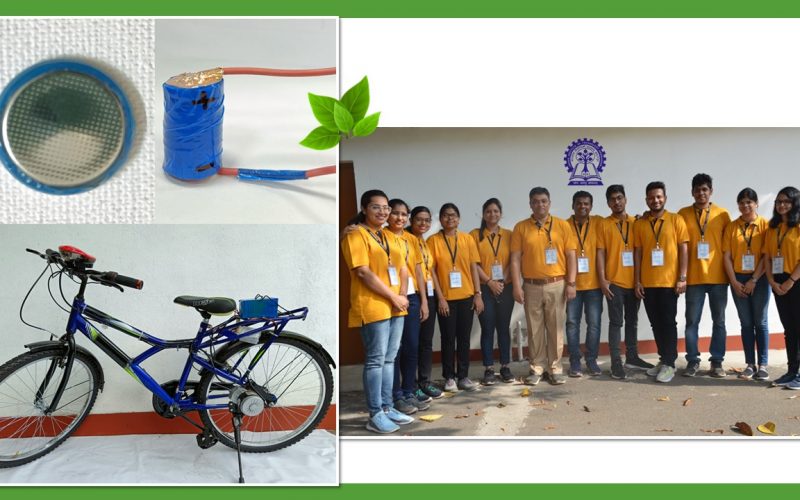
IIT Kharagpur Develops Affordable and Fast Charging E-Cycles with Na-ion based batteries.
IIT Kharagpur has developed Na-ion-based batteries and supercapacitors which can be used to develop affordable e-vehicles such as e-cycles and next-generation Na-ion-based energy storage. A team of researchers from IIT Kharagpur led by Prof. Amreesh Chandra, Department of Physics have used nano-materials to develop Na-ion-based batteries and supercapacitors for next-generation Na-ion based energy storage technologies and their use in e-vehicles. The low-cost Na-ion-based technologies can be charged rapidly and are expected to reduce the cost of the e-cycles significantly. Under the ‘Materials for Energy Storage Program’ and support from Technology Mission Division (TMD) of the Department of Science and Technology,…
